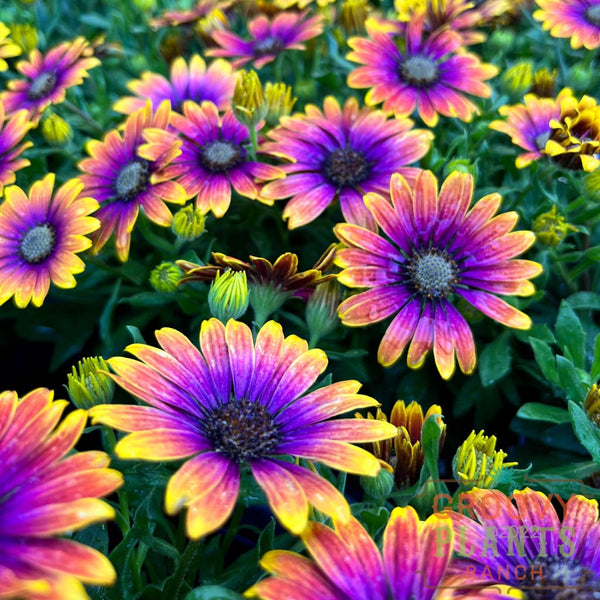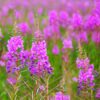Key Takeaways
- African Daisies are non-toxic to dogs, making them a safe choice for pet-friendly gardens.
- The ASPCA lists African Daisies as a non-toxic plant, ensuring peace of mind for pet owners.
- African Daisies thrive in full sun but can tolerate some shade, although it may affect blooming.
- Regular deadheading of African Daisies promotes more vibrant and prolonged blooming periods.
- Proper care, including adequate sunlight and water, enhances the health and appearance of African Daisies.
Identifying Pet-Safe Daisies for Dog Owners
When it comes to ensuring the safety of our furry friends, every dog owner should be aware of the plants they introduce into their home or garden. African Daisies, known for their vibrant colors and hardiness, are often a popular choice. But are they safe for dogs?
According to the ASPCA, African Daisies are non-toxic to dogs. This means that if your curious pup decides to have a nibble, you won’t need to rush to the vet. However, it’s always wise to monitor your pets around any new plant to ensure they don’t have any adverse reactions.
“African Daisy Zion™ Purple Sun | Buy …” from www.groovyplantsranch.com and used with no modifications.
Why Plant Safety Matters for Pets
Many plants can pose risks to pets, ranging from mild digestive issues to severe toxicity. For this reason, plant safety is a significant concern for pet owners. When pets ingest toxic plants, it can lead to symptoms such as vomiting, diarrhea, lethargy, or worse. Therefore, choosing non-toxic plants like African Daisies can prevent these scary situations.
The Role of the ASPCA in Guiding Pet-Friendly Plant Choices
The ASPCA (American Society for the Prevention of Cruelty to Animals) plays a crucial role in educating pet owners about safe plant choices. Their comprehensive list of toxic and non-toxic plants serves as a reliable resource for those looking to create a safe environment for their pets.
“African Daisies are listed as non-toxic to dogs by the ASPCA, providing peace of mind to dog owners who wish to enjoy these beautiful blooms without worry.”
African Daisy Compatibility with Dogs
Besides being non-toxic, African Daisies are also quite resilient, making them an excellent addition to gardens where dogs roam freely. They can withstand some level of trampling and are not easily damaged, which is ideal for active pets.
However, it’s important to note that while African Daisies are safe, a balanced garden should include a variety of non-toxic plants. This not only enhances the aesthetic appeal but also ensures a diverse environment for both pets and pollinators.
Optimizing Growing Conditions for African Daisies
To get the most out of your African Daisies, it’s essential to provide the right growing conditions. They are known for their hardiness but will thrive best when their basic needs are met. For pet owners, it’s also important to consider how pet socialization can impact your gardening space, ensuring a harmonious environment for both plants and animals.
- Soil: Well-draining soil is crucial to prevent root rot. Consider mixing in sand or gravel if your soil retains too much water.
- Watering: Allow the soil to dry out between waterings to avoid overwatering, which can lead to fungal issues.
- Fertilization: A balanced fertilizer applied once a month during the growing season can promote healthy growth.
By following these guidelines, you can ensure that your African Daisies remain healthy and vibrant, providing a safe and beautiful space for both you and your pets to enjoy.
Sunlight Requirements for Healthy Growth
African Daisies are sun-loving plants. They thrive in full sunlight and require at least six hours of direct sun each day to produce their best blooms. Without sufficient sunlight, their flowering may be reduced, and the plant can become leggy.
Therefore, if you’re planting African Daisies in your garden, choose a spot that receives ample sunlight. If you’re growing them indoors, place them near a south-facing window to maximize their sun exposure. Remember, sunlight is a critical factor in keeping your African Daisies healthy and flourishing.
Shade Tolerance and Strategies
While African Daisies prefer full sun, they can tolerate partial shade. However, too much shade can lead to fewer blooms and a less vibrant appearance. If your garden has areas of dappled sunlight, African Daisies may still thrive, but it’s important to monitor their growth and adjust their location if necessary.
To maximize their blooming potential, consider planting them in a spot that receives morning sunlight and afternoon shade. This setup can help prevent the intense midday sun from scorching the leaves while still providing enough light for the plant to flourish. If you’re growing African Daisies in containers, you have the flexibility to move them around to find the perfect light balance. For pet owners, understanding the socialization needs of pets can also help in creating a harmonious garden environment.
Ideal Watering Schedule
African Daisies are relatively drought-tolerant once established, but they do need regular watering, especially during dry spells. The key is to water deeply but infrequently. Allow the top inch of soil to dry out before watering again. This practice encourages the roots to grow deeper, making the plant more resilient to dry conditions.
Overwatering can lead to root rot, a common issue with many garden plants. To avoid this, ensure your African Daisies are planted in well-draining soil. If you’re unsure about the soil moisture, a simple finger test can help—just stick your finger into the soil up to the first knuckle. If it feels dry, it’s time to water.
The Importance of Deadheading African Daisies
Deadheading is a crucial gardening practice that involves removing spent flowers from a plant. For African Daisies, this process not only improves the plant’s appearance but also encourages more blooms. By removing the old flowers, you prevent the plant from expending energy on seed production, redirecting it instead to new growth and flowering.
“Regular deadheading can significantly extend the blooming period of African Daisies, ensuring a vibrant display throughout the growing season.”
Besides that, deadheading helps maintain a tidy garden and reduces the likelihood of diseases that thrive on decaying plant material. It’s a simple task that can be done during a casual stroll through your garden, making it both practical and rewarding.
Enhancing Blooms Through Deadheading
The process of deadheading African Daisies is straightforward. Simply pinch or snip off the spent flower heads just above the first set of healthy leaves. This encourages the plant to produce new flower buds and can result in a fuller, more vibrant plant.
Regular deadheading, ideally once a week during the blooming season, can make a noticeable difference in the plant’s overall health and flowering capacity. It’s a small effort that yields significant rewards in terms of garden aesthetics and plant vitality.
Step-by-Step Guide to Proper Deadheading
- Identify the spent blooms: Look for flowers that are wilted or faded.
- Use clean, sharp scissors or pruners to make a clean cut.
- Cut the stem just above the first set of healthy leaves.
- Dispose of the dead flowers to prevent disease spread.
- Repeat the process weekly for best results.
Final Thoughts on African Daisies and Pet Safety
Incorporating African Daisies into your garden not only adds beauty but also ensures a safe environment for your pets. Their non-toxic nature, coupled with their vibrant blooms, makes them a perfect choice for pet-friendly landscaping. By providing the right growing conditions and practicing regular deadheading, you can enjoy a stunning display of flowers while keeping your furry friends safe.
Always remember to consult reliable sources like the ASPCA for information on plant toxicity. Your pets’ safety should always be a priority, and choosing the right plants is a significant step in creating a harmonious home and garden.
Recap of Key Information
African Daisies, known for their vibrant colors and hardiness, are a pet-safe choice for gardens. According to the ASPCA, they are non-toxic to dogs, ensuring that your curious canine companions can safely explore your garden. These daisies thrive best in full sunlight but can tolerate some shade, though it may impact their blooming. Regular deadheading not only enhances their appearance but also encourages more prolonged and abundant flowering. Providing the right growing conditions, such as well-draining soil and proper watering, ensures that African Daisies remain healthy and beautiful.
Recommendations for Pet Owners
For pet owners looking to maintain a safe and attractive garden, African Daisies are an excellent option. Ensure they receive adequate sunlight and water, and practice regular deadheading to keep them blooming beautifully. Always consult the ASPCA or similar reliable resources when introducing new plants to your home or garden to ensure they are non-toxic to your pets. Additionally, while African Daisies are safe, it’s still wise to monitor your pets around new plants to prevent any unexpected reactions.
Frequently Asked Questions
Many pet owners have questions about the safety and care of African Daisies. Here are some of the most common inquiries:
Are African Daisies safe for cats?
Yes, African Daisies are considered non-toxic to cats as well. This means they are a safe choice for households with both cats and dogs. However, as with any plant, it’s best to keep an eye on your feline friends to ensure they don’t consume large quantities, which could potentially cause mild digestive upset.
Can African Daisies grow well in shady areas?
African Daisies prefer full sun to thrive and produce the best blooms. While they can tolerate partial shade, too much shade can lead to fewer flowers and a less vibrant plant. If your garden has limited sunlight, consider placing them in the sunniest spots available or using containers to move them as needed to maximize sun exposure.
How much African Daisy is safe for my dog or cat to consume?
While African Daisies are non-toxic, it’s still not advisable for pets to consume large amounts of any plant material. Ingesting small amounts is generally safe, but if your pet eats a significant quantity, monitor them for any signs of digestive upset and consult your veterinarian if you have any concerns. It’s always better to prevent excessive consumption by keeping an eye on your pets while they are in the garden.






